Beyond the technology
Safeguarding democracy with data-driven research: How the Media Ecosystem Observatory is using KoboToolbox to track disinformation in the Canadian election
In the lead up to the Canadian federal election, the Media Ecosystem Observatory—an organization dedicated to monitoring the Canadian information ecosystem and safeguarding democracy—reported that 195 potentially fake social media accounts were being used to circulate disinformation about a connection between Liberal leader Mark Carney and Jeffrey Epstein. With approximately 32 million people in Canada actively using social media and 71% of Canadians using social media platforms for information about politics and current affairs, digital media plays a significant role in shaping perceptions and behaviors in democratic processes (Source: MEO survey data). But digital media is often exploited to amplify and spread disinformation and misinformation, making it difficult for voters to identify fact versus fiction with real-world implications for election outcomes. To combat the threat of disinformation in the Canadian election, the Media Ecosystem Observatory is using KoboToolbox to track and analyze hundreds of social media posts, content, and activity every day, ensuring Canadians are empowered to make informed decisions when they cast their vote on April 28.
“By identifying and analyzing the origins and pathways of threats to our information ecosystem, we can help to better understand and mitigate consequential impacts. Our goal is to provide people with information where there is no information—to situate threatening events in our ecosystem in the bigger picture and equip the public with the ability to discern misinformation from facts. Data provides us with critical information and insights that empower people to make informed decisions about how they interact with media and make political choices.” - Jennie Phillips, Project Director, Project on Information Ecosystem Resilience

A research initiative at McGill University, the Media Ecosystem Observatory (MEO) monitors and analyzes the Canadian information ecosystem with the goal of safeguarding democratic processes and empowering Canadians to navigate the digital media landscape. Combining large-scale online data analysis and public surveys, MEO studies how information flows across digital media, from its source to its influence on public perception and behavior. To monitor trends and identify threats to democracy, MEO collects and analyzes crucial data about different types of manipulated information circulating on social media, including deliberate disinformation, misleading narratives and misinformation, foreign influence, bots, and AI-generated deepfakes.
As part of their efforts, MEO leads the Canadian Digital Media Research Network (CDMRN), a nationwide collaborative of academic researchers studying how information is produced, circulated, and engaged with across digital media. With funding support from Heritage Canada’s Digital Citizen Initiative, the CDMRN is helping to respond to disinformation threats during the Canadian election. Using data collected with KoboToolbox, MEO can track and trace disinformation and mobilize the CDMRN to quickly investigate incidents that pose a risk to democracy.
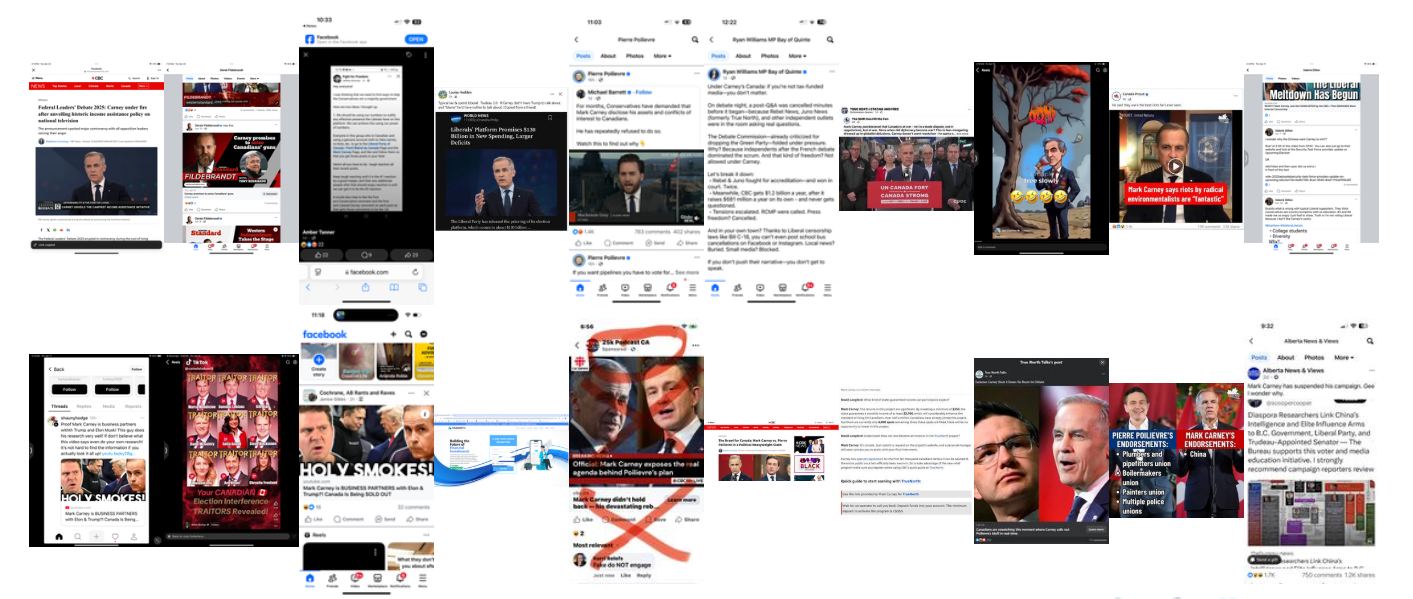
In 2023 alone, an estimated 500,000 AI-generated deepfakes were shared on social media globally, making it increasingly difficult for users to know if the content in their feed is real or not. In fact, 51% of Canadians believe that deepfakes pose a significant threat to elections in Canada and other democratic countries. To protect the integrity of the Canadian democratic process during the federal election, MEO, the CDMRN, and the Coalition for Information Ecosystem Resilience are actively gathering data on incidents of disinformation related to political parties, leaders, candidates, and the electoral process that pose a risk to the Canadian public’s access to accurate, reliable information.
Using KoboToolbox, MEO collects up-to-date data through their Digital Threat Tipline, where the public can submit tips about misleading information and online media content that could negatively impact democracy in Canada. Tips are assessed, triaged, and investigated by the MEO team based on threat level. At the same time, large-scale data monitoring and analysis is supported by a team of 30 media researchers across the country who use KoboCollect to identify, track, and report manipulated information related to the Canadian democratic process. Using KoboToolbox as their primary data collection platform, MEO is able to integrate and manage data collected with the Tipline and through their large-scale media monitoring to better understand the flow of disinformation across the Canadian information ecosystem.
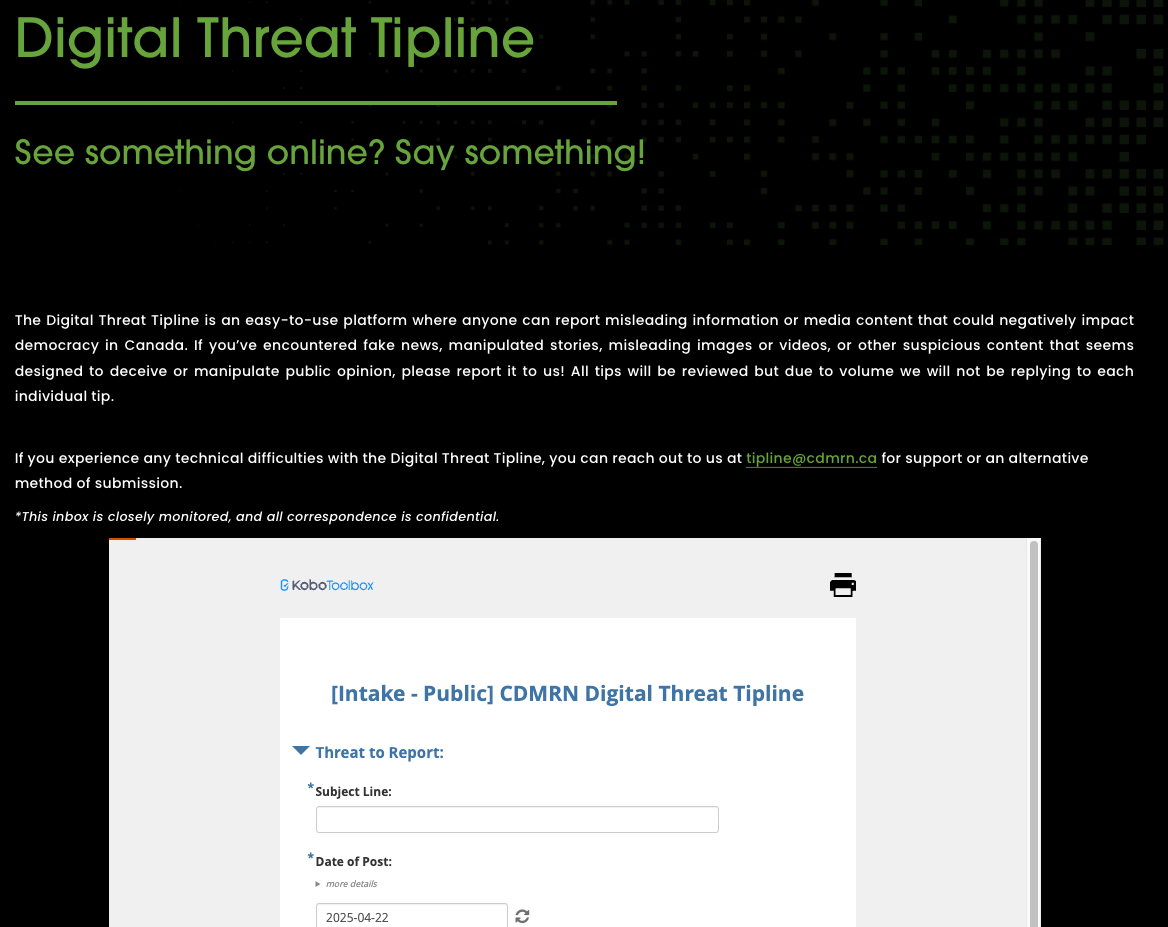
To gather data directly from Canadians during the election, MEO used KoboToolbox to create a user-friendly survey for their Digital Threat Tipline. Available in English and French, the Tipline enables the MEO team to collect important information from the Canadian public about potential disinformation, including when and where it was published, links, screenshots, and details about the type of threat or concern. To date, the majority of submissions have been directly related to elections and voting, foreign relations and influence, electoral actors, media and platforms, and threats and manipulation.
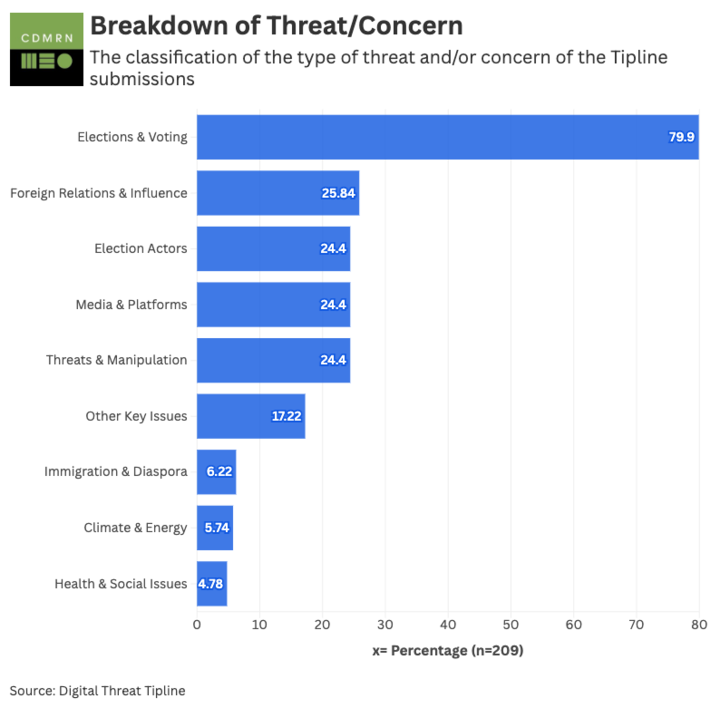
The MEO team then validates the submitted data, conducts preliminary research to confirm the reported disinformation, and traces its source, engagement, and circulation across platforms. Since its launch on March 21, the Digital Threat Tipline has received 209 tips from the public about misleading and manipulated information, ranging from foreign influence to AI-generated images. The disaggregated data collected so far shows that 66% of potential incidents reported by the public involve posts on Facebook, 14% on TikTok and YouTube, 10% on Instagram and Threads, and 5% on other digital media platforms.
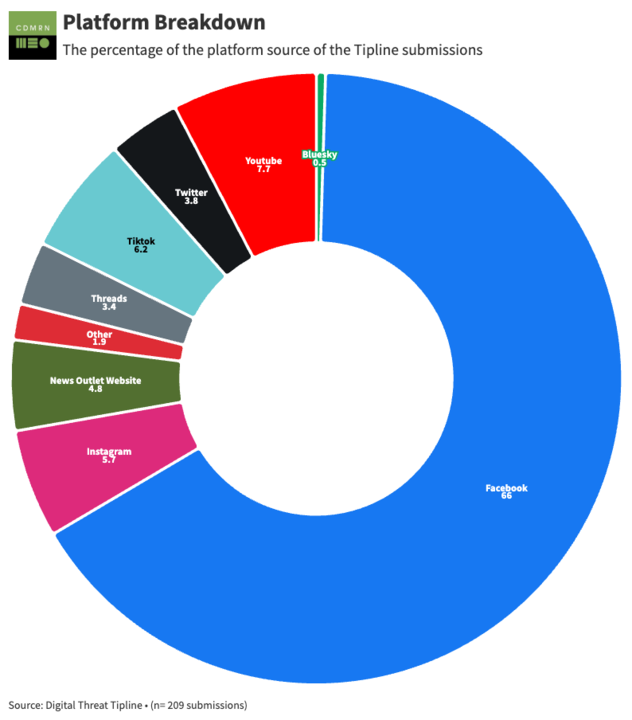
In addition to the Tipline, MEO actively monitors and investigates potential threats to the Canadian information ecosystem to understand their origin, impact, and risk to democracy, sharing vital information with Canadian voters. To inform their large-scale media monitoring, the MEO team uses automated social media analysis to develop datasets on the most influential accounts based on metrics like views, engagement, followers, and content. They found that in Canada, a staggering 90% of the content and discussion circulating on social media is produced by just 10% of accounts, which includes journalists, politicians, news networks, social influencers, nonprofit and advocacy organizations, as well as industry groups. This insight into the disproportionate influence of a small number of accounts highlights the crucial role of coordinated, research-driven oversight of the digital public sphere. Adopting KoboToolbox for their election monitoring enabled the MEO team to rapidly expand their datasets on the top influential accounts and monitor them across different platforms—an approach which is unique in media monitoring practices.
“Access to accurate, up-to-date data is critical for digital media monitoring, especially in fast-moving contexts like an election. Using KoboCollect, our media monitoring team is able to efficiently gather large volumes of data from social and digital media directly on mobile devices. This allows us to quickly and effectively structure the data so we can track patterns as they happen and rapidly generate detailed insights.” - Nader Hedfi, Data Analyst

To monitor trends and analyze changing dynamics for potential disinformation incidents, MEO developed a complex survey tool with KoboToolbox and XLSForm that allows their research team to gather detailed data about the circulation of online content, including screenshots, images, links, and engagement metrics. The survey tool helps to immediately structure vast amounts of unstructured data as enumerators categorize information according to specific topics and threat types, such as foreign influence, election integrity, or AI-generated deepfakes. Using KoboCollect has been key to streamlining the collection and management of data from different online platforms. So far, the research team has collected data on 215 social media posts and disinformation incidents related to the upcoming election, giving them key insights about emerging incidents that could harm democratic decision-making.
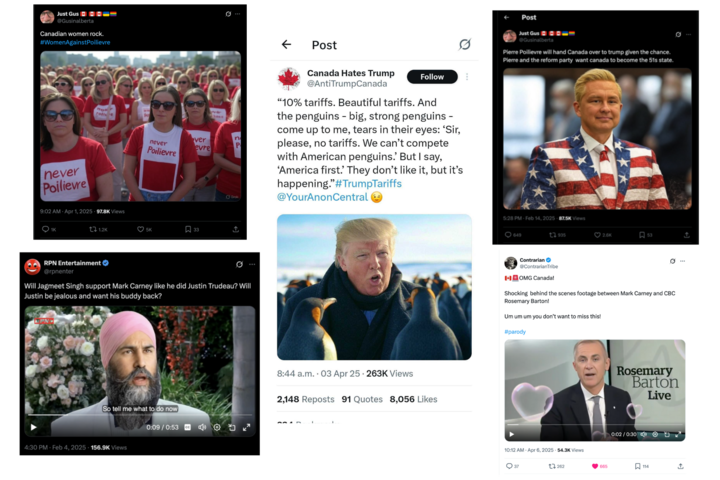
Data collected by the research team about disinformation, including AI-generated images of candidates, misrepresentation of voter polling, and bot activity, is centralized in KoboToolbox for MEO’s data analysts to validate, assess risk level, and determine if an investigation is needed. With access to detailed, structured data, MEO can quickly take action to mobilize the CDMRN response team and launch an investigation within 12 hours. To date, the CDMRN has investigated 32 incidents of manipulated information that presented an immediate threat to democracy in Canada.
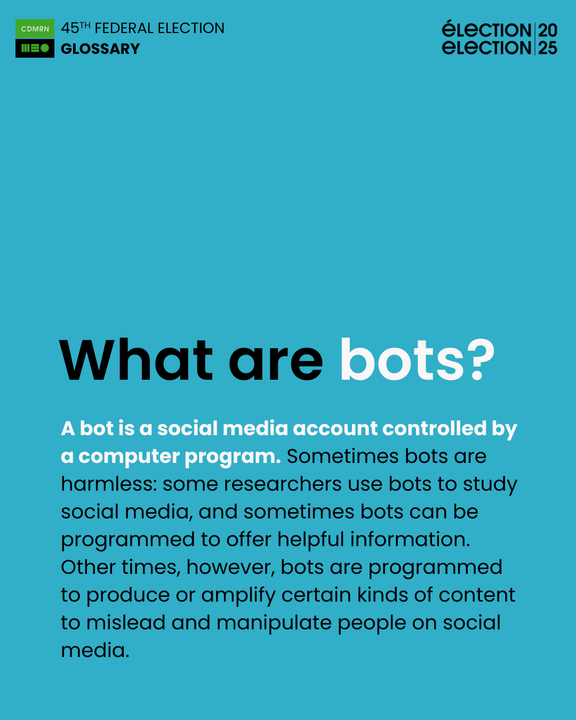
To raise awareness about the circulation of disinformation, MEO’s investigation findings and data insights are shared with the public in weekly updates during the election. In one of their most recent updates, MEO shared that they had identified seven deepfake videos about Liberal leader Mark Carney as well as 40 Facebook pages promoting fraudulent ads related to the election. Access to this information empowers Canadians to engage in the digital information ecosystem in an informed and critical way so they can better determine if content about a candidate or political party is accurate and reliable, which is critical to protecting the integrity of the democratic process.
“The Media Ecosystem Observatory’s work is crucial for understanding the influence of disinformation across digital media and the threat it poses for democratic processes. MEO’s efforts show how data can be used to safeguard democracy by tracking misinformation and empowering people with real information so they can make informed decisions when they cast their vote. It’s inspiring to see KoboToolbox used to enable this essential research.” - Tino Kreutzer, Kobo’s Chief Operating and Innovation Officer
Equipped with detailed, accurate data and innovative tools like KoboCollect, the Canadian Media Ecosystem Observatory is developing cutting-edge approaches to digital media monitoring and playing a crucial role in protecting democratic processes from disinformation. By shedding light on the sources and spread of manipulated information during the Canadian election, MEO is providing vital information to better empower voters, raise awareness about reliable news sources, and promote informed democratic participation. Looking ahead, MEO plans to use KoboToolbox to scale their digital data collection efforts both within and outside of Canada, expanding their study of disinformation internationally, and building on critical insights from the Canadian election to help shape future planning and policy development. Through their groundbreaking leadership in media monitoring, threat detection, and public education about disinformation, MEO is making important progress towards a safer and more resilient information ecosystem for Canadians.